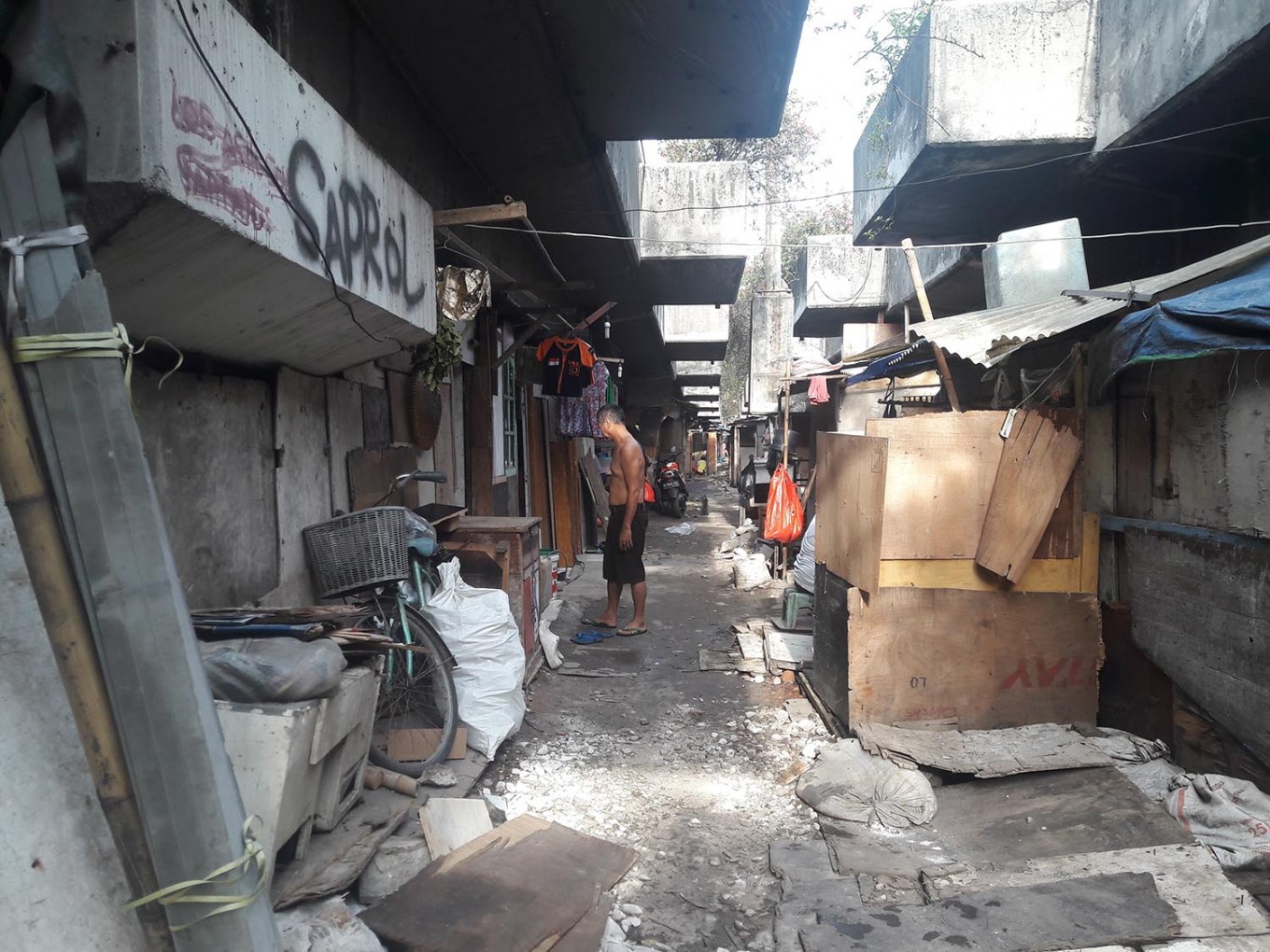Popular Reads
Top Results
Can't find what you're looking for?
View all search resultsPopular Reads
Top Results
Can't find what you're looking for?
View all search resultsPoverty rate at 3.47% in Jakarta, but 27.53% in Papua: BPS
“It’s important to note that the wealth disparity between urban and rural areas remained very high with the rate in rural areas almost two times that of the rate in urban areas,” BPS head Suhariyanto said on Monday.
Change text size
Gift Premium Articles
to Anyone
T
he wealth disparity between Indonesians living in urban and rural areas remains even as the country’s poverty rate decreased to 9.41 percent in March from 9.66 percent in September 2018 and 9.82 percent in March 2018, according to Statistics Indonesia (BPS).
“It’s important to note that the wealth disparity between urban and rural areas remained very high with the rate in rural areas almost two times that of the rate in urban areas,” BPS head Suhariyanto said on Monday.
The poverty rate in urban areas was recorded at 6.69 percent and 12.85 percent in rural areas
Suhariyanto added that the poverty disparity among provinces also remained very high.
Jakarta, for example, has the lowest poverty rate of 3.47 percent, while Papua has the highest at 27.53 percent.
Suhariyanto said that currently, the number of poor people in Indonesia stood at 25.41 million, an 800,000 decrease from the figure in March 2018.
He said the decrease in the poverty rate was supported by an overall increase in farmers’ wages, price decrease of staples like poultry, vegetable oil, sugar and chilies, as well as the low inflation rate, which was at 1.52 percent in the period of September 2018 to March 2019.
He also noted that the increase in the government’s social assistance through non-cash food assistance program (BPNT) and rice assistance (Rastra) to poor households was a significant factor in pushing down the poverty rate.
Under Rastra, the government distributed 10 kilograms of rice to 14 million poor families every month, while through the BPNT, the government distributed Rp 110,000 (US$8) to 15.6 million poor families in the form of e-money every month.
Meanwhile, the Gini ratio decreased by 0.007 points to 0.382 in March from the same period last year. The Gini ratio is a measure of inequality in which zero represents complete equality and one represents complete inequality. (nal/bbn)










